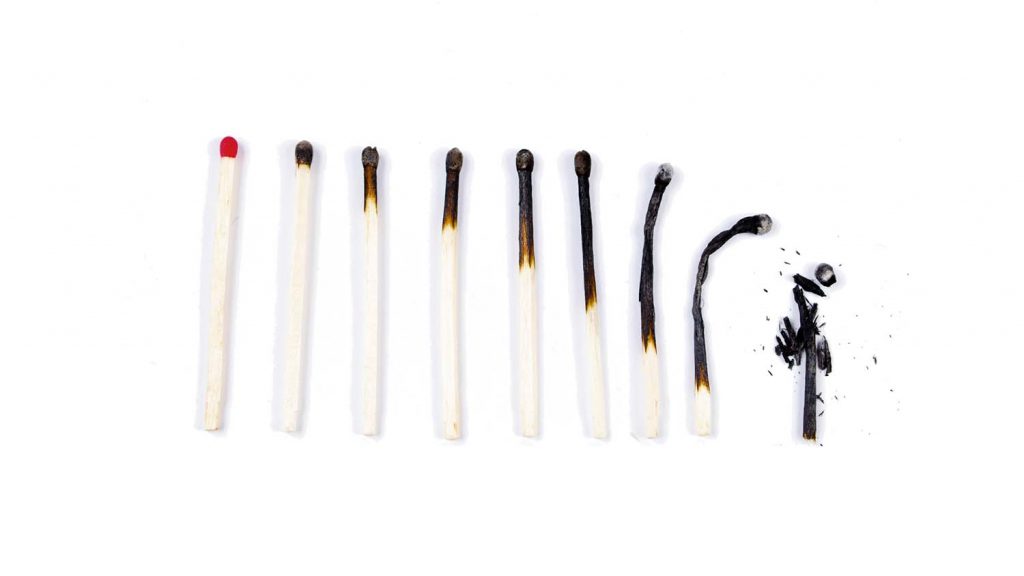Stress and burnout are huge issues for engineers, but they simply don’t get discussed enough. We nerds need to do a better job of sticking together in difficult times, writes our regular columnist Erin McDermott
It’s happening again. I’m getting emails from distressed engineers. They think I’m a safe person to confide in and they’re not wrong.
The first time this happened was five years ago when I abruptly quit my corporate job, sold everything I could and left the country on sabbatical.
Everyone wanted to know: What new job was I jumping to? I didn’t have one.
When this fact became apparent, outsiders could easily imagine I wasn’t in the most ecstatic place in my life. These onlookers were also correct. The optics at that time encouraged several engineers to feel comfortable messaging me privately. They were suffering from severe stress. Some might call it ‘burnout’.
Their work environments were unbearable for a variety of reasons. Maybe the rules were too constricting. Maybe they were shipped to foreign countries at short notice, when they’d rather be attending their child’s sixth birthday party. Some struggled with expenses.
Many wanted a new job. Some wanted independence. Others longed for a travelling sabbatical, too. Yet another revealed he had jumped in a river during a suicide attempt. He was later mocked by his co-workers when he recovered and returned to work.
It’s happening again. I’m getting emails from distressed engineers. They think I’m a safe person to confide in and they’re not wrong
The flood of these messages shocked and horrified me. On one hand, it was comforting; I was not alone. On the other hand, I don’t think anyone realises how many of us tech pros suffer. It was only my unique and openly public position that afforded me this insight.
Normally, we don’t talk about the extent of these stressors too much. There’s a reason for that.
One time, while working at the most toxic work environment I ever experienced, my coworkers and I threw an off-site party. It wasn’t long before the complaining started, but the stories were told as jokes. The tales were so unbelievable as to how we were treated that they easily translated to comedy.
At one point, one of the co-worker’s wives thanked us. We were perplexed. “For what?”
“I thought my husband was making up how terrible things were,” she said. “I thought there is no way the environment could really be like that. But now I know it’s real. Thank you for sharing.”
Likewise, when friends and family members saw me ‘irrationally’ fly the coop from my fancy, science-y, cushy, lucrative, big-city cakewalk of a job, they also didn’t get it.
One of my cousins said, “That must have been a really easy job and you must have been making bank! Why did you quit?”
I replied it was because neither of those things were true.
Fellow engineers, designers and other tech nerds, our friends and family have trouble believing that our jobs sitting at a desk could involve stress! The truth is, the stress scale varies widely from industry to industry and from one geographic location to another.
Perhaps you’re reading this thinking, “Well, I don’t mind my job that much and the pay is OK.”
Good! That’s great! I’m happy for you. However, I can guarantee that’s not the same experience across the board.
Today, the messages I get are slightly different. The normal stressors are still present, but now an even wider swathe of engineers feels the brunt of economic instability.
Even some who I tried and failed to seduce last year into staying in Freelance Engineer Land are contacting me!
Back then, they chose the stability of a full-time, ‘permanent’ position over the instability of independence. Ironically, they’re now looking for work.
On the other side of the aisle, those who stayed in the world of independent freelancers are also shaken. But unlike those who woke up one day without a full-time job, their life structures are more flexible.
Instead of only looking for extra work from me directly, they tell me of ways they might restructure their offerings. I’m doing the same.
So if you’re feeling extraordinarily stressed with no one in your circle who can sympathise, I humbly offer the following tips:
- Know you’re not alone. Many of us with ‘cushy’ and ‘stress-free’ jobs have been close to snapping;
- If you’re looking for more work, different work, or more fun work, don’t be afraid to shout about it! It’s the best way to make progress;
- Give back. Let people know what you can offer and be open to helping. Make introductions. Give free technical advice on forums and LinkedIn posts. Offer to advise more junior engineers.
Right now, I’m working on resources to help engineers make the leap into freelance life or grow their existing small business. So, if there are questions you want to ask privately or anonymously, please contact me.
Us tech nerds need to stick together and I’m more than happy to assist! We can help each other make it through this.
Get in touch:

Erin M. McDermott is Director of Optical Engineering at Spire Starter and a digital nomad (read: vagrant).
She travels the world meeting hardware engineers who don’t know that things using light (cameras, LED illumination, LiDAR, laser processes etc) need competent design, optimisation, and tolerancing like the rest of their widget.
Get in touch at spirestarter.com or @erinmmcdermott






